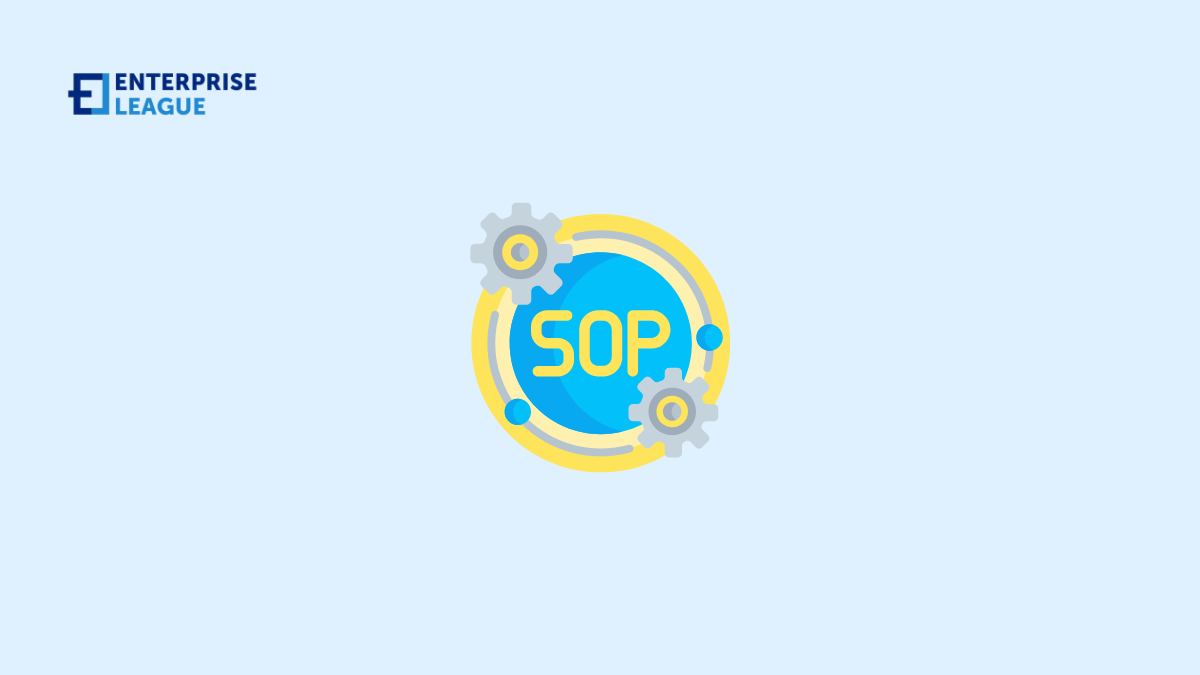Being a manager isn’t an easy task. You have to manage many conflicts, arrange the onboarding of new employees, and deal with frequent interruptions all while trying to get things done. That’s why savvy leaders prepare their employees to perform critical tasks as well as they do. You can’t just issue commands and expect others to follow them.
Managers need to plan out ways to make mundane jobs look appealing to others who aren’t directly involved. In addition, they have to provide employees with the resources they need to succeed.
Developing standard operating procedures (SOPs) is the greatest method to promote employee independence while ensuring consistent outcomes. There is no room for misunderstanding, misinterpretation, or reinventing the wheel when completing duties since they have been well-documented and laid out clearly and concisely.
Why standard operating procedures (SOP) are important
Learn what are the advantages of the standard operating procedures (SOP) and why is so vital to implement in your business.
Deliver accurate outcomes
The most crucial advantage of creating SOPs is consistency, which is essential for operating a successful business. After all, a business may provide more than one kind of product or service, but it must guarantee that every item it sells will meet or exceed the expectations of its consumers.
When you create a standard operating procedure, it ensures that everyone in the company follows a consistent process with little potential for mistakes. Employees are more likely to make errors, neglect crucial procedures, and lower production quality when they are free to carry them out in whichever manner they see fit.
By following them, you give your business the best possible chance of succeeding. You’re instituting a system of assured dependability, quality management, and stakeholder security. In addition, SOPs enable businesses with several locations over a greater geographic area to maintain uniformity in their operations, which in turn strengthens customer recognition of the brand.
Keep your brand’s image
You’ve worked tirelessly to guarantee that the company’s brand is seen in a positive light. The company has put in a lot of time, effort, and money to perfect its image. Making and adhering to a set of principles that would serve as branding standards is essential for safeguarding the effort and resources already invested.
Here are some things you should consider including:
- Guidelines for employees’ use of social media
- Company-specific branding across all promotional materials
- A standardized set of formatting rules for all official company publications
- Email signatures and formatting standards
- Directives for dealing with the press and other third parties
It helps boost productivity and cut down on mistakes
Having standard operating procedures (SOP) helps eliminate confusion and assists to make sure all staff are on the same page about their responsibilities and duties. SOPs are also helpful when making employee reviews or development plans because they show in writing what is expected of workers.
Easy work transfer
Most employees take a sick day now and again, but in the event of a lengthy absence, written SOPs make it easier to pass on their responsibilities. You can guarantee that any employee will be able to finish their assigned job with only a little guidance if you document the steps for them to follow.
Make client service consistent
Imagine if a worker on your customer service team received a complaint about a product or service but couldn’t adequately respond. Dissatisfied customers are unlikely to return, and neither will the references they could have brought in.
Without standard operating procedures, businesses would struggle to provide satisfactory customer service each time a complaint was addressed or an issue was escalated to several employees. Moreover, a whopping 72% of customers think it’s bad customer service to have to explain your issue to several employees.
Due to the lack of defined methods for adequate follow-up times or how to inform consumers about new customer care questions and rules, customers choose to deal with companies that are reputable and would follow up with an upset client. Standard operating procedures not only guarantee the proper outcomes for clients via customer service but also guarantee that the customer care staff is acting ethically.
Conclusion
There’s no limit to the value that standard operating procedures (SOP) may provide to a company. A progressive business would put money into any instrument or procedure that would help them educate and manage their staff better, boost efficiency, and ensure the safety of their employees. The return on investment (ROI) will undoubtedly justify the cost.
More must-read stories from Enterprise League:
- How successful local businesses can give back to the community.
- Common hiring mistakes that employers make and how to prevent them.
- Pros and cons of social media for business you should be aware of.
Related Articles
4 Top-Rated Fleet Management Services for Mobile Health Care Providers
As the number of mobile health care programs rises, their success depends on medical expertise and flawless logistics. Challenges like vehicle uptime, specialized maintenance, driver staffing, regulatory compliance and route optimization can overwhelm organizations....
Why Every Business Needs a Technical SEO Agency
Introduction Just having a website isn't enough for businesses today. Companies, especially SaaS businesses, need to make sure their platforms are visible and user-friendly. This is where SEO for SaaS comes in. But SEO isn't just about adding keywords; it requires a...
19 real estate business ideas that let you start small and grow loud (2026)
Perfect for side-hustlers, career-changers, and anyone who wants their money working harder than they are. These real estate business ideas are where to start.
4 Top-Rated Fleet Management Services for Mobile Health Care Providers
As the number of mobile health care programs rises, their success depends on medical expertise and flawless logistics. Challenges like vehicle uptime, specialized maintenance, driver staffing, regulatory compliance and route optimization can overwhelm organizations....
Why Every Business Needs a Technical SEO Agency
Introduction Just having a website isn't enough for businesses today. Companies, especially SaaS businesses, need to make sure their platforms are visible and user-friendly. This is where SEO for SaaS comes in. But SEO isn't just about adding keywords; it requires a...






